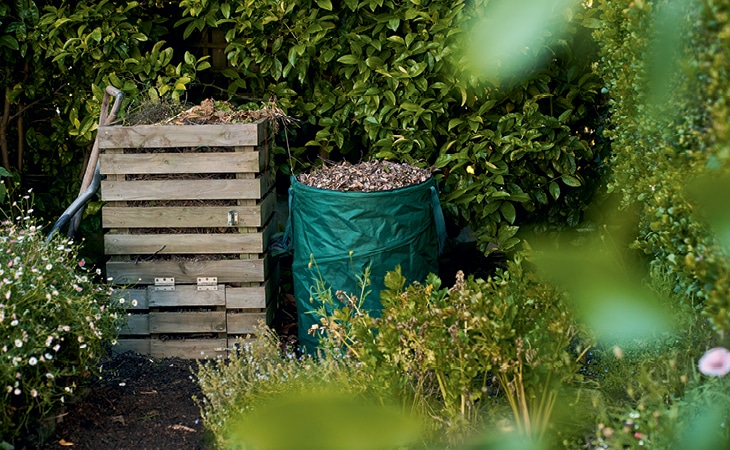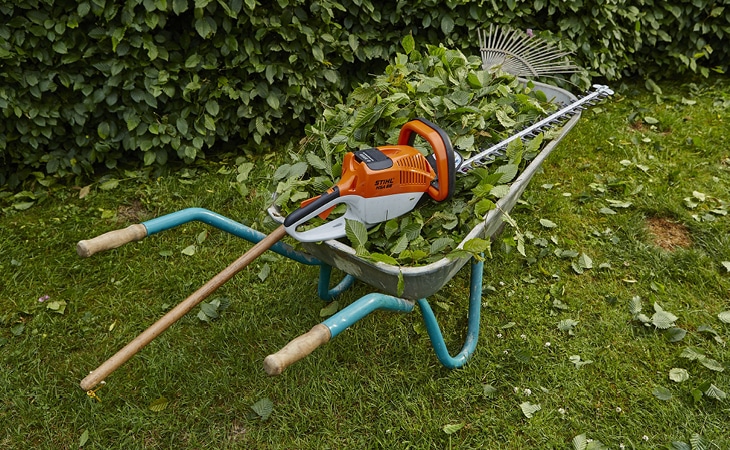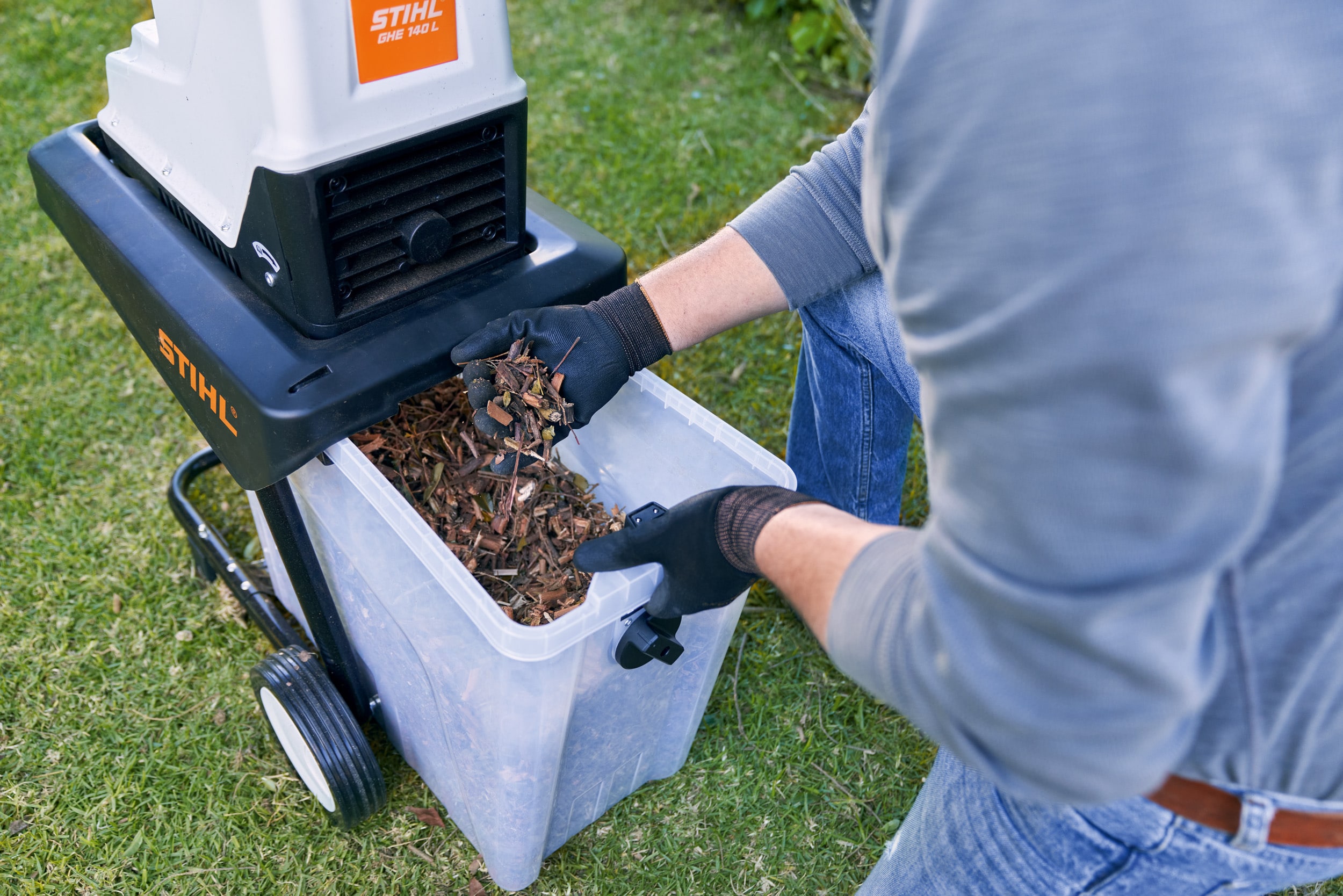A good compost can take up to three to six months to develop. It’s much easier than it sounds, and, if done correctly, your garden and plants will reap the benefits for years to come. It will also save you space in your green bin or a trip to the tip by providing a place for you to dispose of the leaf litter and debris that accumulate in abundance during autumn and winter.
Shredding garden waste facilitates the process of composting and will take you half the time, and with STIHL’s range of electric garden shredders, turning waste into black gold has never been easier.
WHAT IS COMPOST?

Compost is a collection of decomposed organic matter, which makes a great natural, nutrient rich fertilizer for your garden. It also doubles as a great substitute for mulch, a top dress for your lawn, or a healthy addition to your potting mix.
WHAT MAKES UP A GOOD COMPOST?
A good compost is made up of four key components; green matter, brown matter, oxygen, and water – it’s that simple!
- GREEN MATTER

Leafy greens and lawn clippings will add nitrogen to your compost pile, which will then grow and reproduce organisms to oxidise the carbon (brown matter). These additions are often green and wet, such as vegetable scraps, fresh lawn clippings and weeds pulled from your garden. Avoid too many green ingredients however, as too many will result in a foul smelling, rotting pile, instead of a composting one.
- BROWN MATTER

Brown and dry natural ingredients such as fallen leaves, hedge clippings and shredded branches will supply your pile with carbon for energy (heat). These dry materials are very important to the success of your compost pile, but once again, if you over index on the amount you add in, it will take far too long to decompose and your compost won’t be ready in time for Spring!
- OXYGEN
Just as important as the ingredients themselves, your compost needs air! Avoid using containers or tubs that have sides, and do not position your pile in a trench. Shredding your materials beforehand will also facilitate airflow and reduce the need to turn your pile so frequently.
TIP: Put your garden waste through your shredder two or even three times for optimal mixing and aeration.
- WATER
Your compost pile will need light, regular watering roughly every fortnight, unless you live in a typically dry part of the country. It is important that there is enough moisture to aid the decomposition of organic matter, however too much will leave you with a soggy mess. Once again, shredding materials before they are added to your compost pile will help the matter to absorb the water and in turn, help the materials to decompose.
Here is a quick list of what should and should not end up in your compost:
DO ADD:
- Vegetable scraps
- Weeds
- Onions
- Light layers of grass cuttings
- Tea leaves
- Newspapers
- Saw dust
- Ground coffee
- Egg shells
DO NOT ADD:
- Anything artificial, such as metal or glass
- Bread
- Large branches
- Treated paper, such as glossy magazines
CREATE YOUR OWN COMPOST IN FIVE STEPS:
- Find a suitable area for your compost, making sure it is in the shade and well drained. Earthworms are beneficial to your compost so it important that your pile is connected to the ground, and not inside a tub or box.
- Layer your site with coarse materials such as twigs and small branches, this will allow water to drain effectively.
- Add a layer of green matter, followed by brown matter including some newspaper. Add a light sprinkle of water after each layer before you add the next.
- Repeat step 3.
- If you have some compost or soil handy, sprinkle some of this on top to give it a boost. TIP: This will also reduce any odors, which are typically noticed in the early days of a new compost pile.
Lastly, maintain your compost by turning the pile every few weeks to allow the air to penetrate the organic matter. A good compost can take up to three months to be ready for use, so it’s never too early to make a start!
First published on Stihl.com.au

